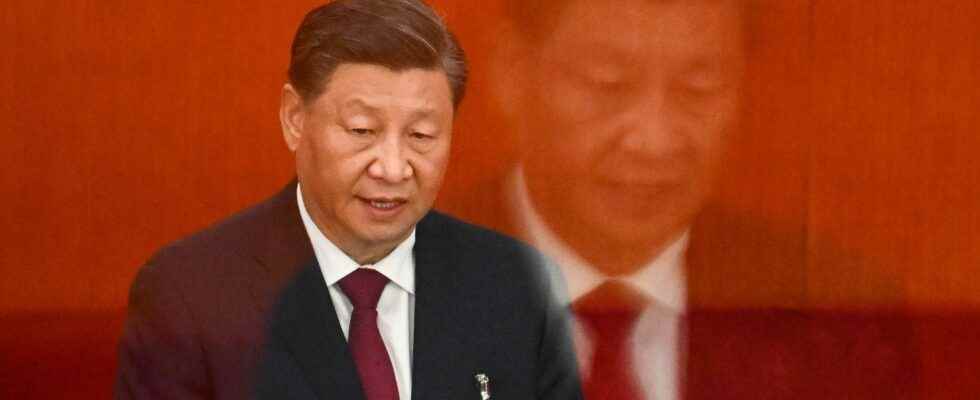Over the past two decades, how many headlines, press articles and books have presented the People’s Republic of China to us as the new first world power to come, or even already effective! With, as often among apprentice geopoliticians, the incomplete highlighting of insufficient criteria, such as GDP growth and population mass. Early observation!
Let’s start with the economy, strong point of Beijing’s rise to power and, therefore, with the growth of this famous GDP; this has fallen from 12% to 3% in less than a decade. However, neither the calamitous management of the Covid, nor the consequences of the war unleashed by “the unfailing friend” Putin in Ukraine fully explain this dizzying fall. More structurally, the overheating of the economy, the slowdown in investment and the reaction of Westerners in strategic sectors have largely contributed to this. With such weak growth, the goals of achieving prosperity for the 700 million Chinese living around the poverty line will not be achieved, and this is the whole credibility of a regime justifying its repression and the demand for sacrifices which risks collapsing in the short term. It should be added that China is extremely dependent on the outside (in particular the Gulf) for its supply of hydrocarbons.
Next, demographics. If the one-child policy has officially ended, this is not the case with its practice! Most Chinese young people don’t obey the CCP and are content with a stay-at-home child. But with a fertility rate of 1 [enfant par femme en âge de procréer]one of the weakest in the world with Japan and the States of Eastern Europe, and in the absence of a proactive migration policy, the country will quickly suffer from labor shortages in industry, the mining sector and agriculture, a chronic inability to finance pensions and a probable weakening of research.
A very unfavorable maritime geography
Diplomacy ? Admittedly, the purchase of the sovereign debts of several dozen states has enabled China to avoid remonstrances in terms of human rights or positions taken in favor of Taiwan. But looking closely, we see that the states financially dependent on Beijing are almost all, in Africa, Latin America and Oceania, very weak and devoid of real geopolitical weight. As for the more powerful states located on the terrestrial Silk Road, like the vast Kazakhstan, they do not mechanically pledge allegiance to it.
There remains, precisely, the military and strategic aspect. During the 7th Geopolitical Meetings of Trouville-sur-Mer, Admiral Loïc Finaz rightly recalled that “every three years, China built the equivalent in tonnage of the entire French war fleet”. But does this undeniable demonstration of force on the seas, the first since the Ming, in the 15th century, imply a real break in capacity? Beyond the posture and the hallucinating budgetary sacrifices that it implies, what do we know about this new Herculean force? What would these ships – and their commanders – be worth against the American Seventh Fleet? Devoid of solid military partners, the Chinese naval forces train alone or, sometimes, with the Russian fleet which has hardly shone lately in the Black Sea… Finally, let’s talk about the fundamentals of a very unfavorable maritime geography ; as Isabelle Saint-Mézard, of the French Institute of Geopolitics, clearly shows in her recent Geopolitics of the Indo-Pacific (PUF), China faces insular and archipelagic areas, most of which are western or allied to Washington (the island of Guam being even sovereign US territory), from India to French possessions, via Japan , South Korea, Australia, the Philippines, Singapore (which commands the strategic Strait of Malacca), the Marquesas, Vanuatu or… Taiwan. In this respect, Beijing’s failure to establish itself militarily in the Western Pacific (except, perhaps, in the Solomons) highlights the success of Joe Biden who, during his May 2022 regional tour, created a partnership including several countries close to China, as well as the rapid increase in the Indian, Japanese and Australian military budgets.
In the end, wasn’t the main asset of a regime aiming for external power embodied in internal stability? Until the recent spontaneous popular riots linked to the Covid, indeed…
